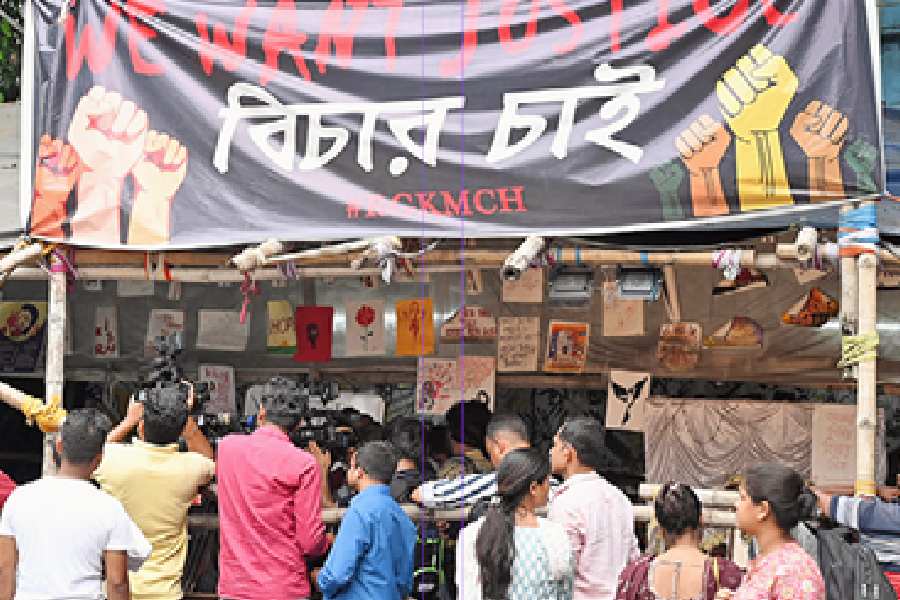The junior doctors should go back to work and trust institutions like the Supreme Court, said the Indian Medical Association (National), the biggest body of doctors, on Tuesday.
Junior doctors across all government medical colleges and hospitals in the state went on a complete cease-work from Tuesday morning, nine days after they had resumed work in essential services after a 42-day strike.
“Go back to work. That is what we have appealed to junior doctors and are appealing again,” IMA (National) president R.V. Asokan told Metro on Tuesday.
“The Supreme Court is hearing the case now. We need to trust the institution. Nations are made of institutions and the citizens have to have trust in them,” Asokan said.
“We can be angry but at some point we need come down to a conflict resolution and what can be a better institution than the Supreme Court?”
Commenting on the points of protests of junior doctors like lack of security at government hospitals, Asokan said a point can be made but it should be made to the Supreme Court.
“You can continue to make your point. They (junior doctors) can make the point in front of the Supreme Court,” said Asokan.
“Dialogue is important in a democracy,” he said.
He said the IMA national body was supporting the cause of the junior doctors. “We went for withdrawal of service across the country for one day. That solidarity and support was there. Even people of the entire nation said ‘we understand’. But then we should go back to work,” said Asokan.
The state government on Tuesday said that since August 9, when the junior doctors went on a cease-work after the rape and murder of the 31-year-old postgraduate trainee at RG Kar Medical College and Hospital, approximately 11 lakh consultancies at outpatient departments of government hospitals could not take place.
“Denial of approximately 70,000 indoor admissions is reported because of the ongoing cease-work,” a health department official told Metro.
Nearly 10.5 lakh laboratory tests did not happen because of the dip in OPD consultancies and indoor admissions, said the official.
As many as 7,639 major surgeries did not take place at government medical college hospitals because of the cease-work, said the official.
Asokan blamed the state government for the lack of service.
“Junior doctors are students. Their primary job is to learn. They are not the people to run the system. Why is the state government dependent on them to run the system? They should have a system that would be robust enough to run despite everything,” said Asokan.
“Why does the state not have enough doctors?” he asked.
Some senior doctor leaders in Bengal also said the junior doctors should go back to work.
“For tactical reasons, the junior doctors should avoid steps like cease-work now,” said Subarna Goswami, leader of the Joint Platform of Doctors, West Bengal.
“The ruling party is now using some of its MLAs and MPs for its anti-doctor campaign and they are provoking common people against the doctors. There is an attempt to try and create a sentiment against doctors,” said Goswami.
“Keeping this in mind they should reconsider the alternatives. It is a better alternative to resume work and also continue the protest,” he said.
“We, the senior doctors, are working and also protesting on the streets like we did today,” said Goswami. He was part of the march from College Square to Rabindra Sadan on Tuesday.
He said the senior doctors were supporting the juniors by compensating for them not working. “We are doing double shifts. But now the senior doctors are exhausted, too,” Goswami said.











